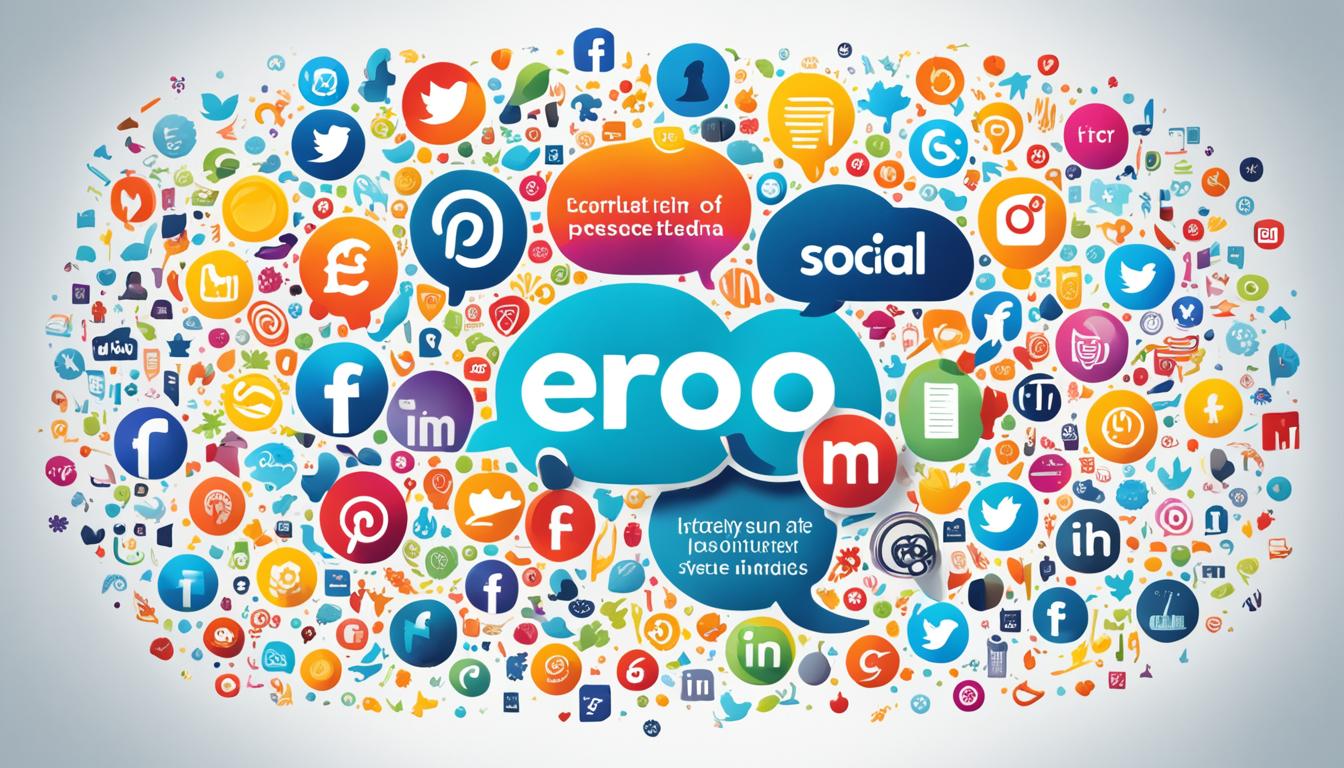In today’s digital age, a strong online presence is crucial for any brand looking to connect with their target audience. Creating engaging content, building brand awareness, and fostering customer loyalty are all essential components of an effective marketing strategy. That’s where a social media manager comes in. This invaluable professional possesses the skills and expertise to elevate your brand’s impact in the vast realm of social media. By harnessing their knowledge and experience, you can take your online presence and audience engagement to new heights.
Developing a robust social media strategy requires careful planning and a deep understanding of the ever-evolving digital landscape. A skilled social media manager is equipped with the tools and insights necessary to navigate this dynamic environment effectively. They can create engaging and impactful content, curate a visually appealing feed, and tailor messaging to resonate with your target audience.
Not only does a social media manager handle day-to-day operations, but they also possess the ability to monitor analytics, track performance, and identify areas for improvement. They understand the importance of staying on top of social media trends and adapting strategies accordingly to ensure maximum visibility and brand exposure.
Key Takeaways:
- A social media manager can enhance your brand’s online presence and audience engagement.
- They create effective social media strategies, manage content, and monitor analytics.
- A social media manager helps establish brand identity, increase brand awareness, and drive customer engagement.
- Hiring a social media manager leads to increased efficiency, improved ROI, and better targeting of the audience.
- Finding the right social media manager involves evaluating skills, experience, and alignment with your brand’s values.
The Role of a Social Media Manager
A social media manager plays a pivotal role in the success of a brand’s online presence. They are responsible for creating and implementing effective social media strategies, managing content, monitoring analytics, and engaging with the audience. Let’s dive deeper into the key responsibilities and tasks that define the role of a social media manager.
Crafting Compelling Strategies
A social media manager develops strategies to establish a brand’s online identity and enhance its visibility. They analyze the target audience, market trends, and competitor strategies to create a comprehensive approach for maximum impact. By utilizing their expertise in various social media platforms, they ensure that the brand’s message reaches the right audience at the right time.
Content Management
Content is crucial for engaging and capturing the attention of the audience. A social media manager curates and creates captivating content that aligns with the brand’s values. They collaborate with designers, copywriters, and other team members to produce visually appealing posts, videos, and graphics. It is their responsibility to maintain a consistent brand voice and ensure that the content resonates with the target audience.
Analytics and Measurement
Monitoring and analyzing the performance of social media campaigns is vital for success. A social media manager uses analytics tools to track key metrics like reach, engagement, and conversion rates. By interpreting these metrics, they gain valuable insights into the effectiveness of their strategies and make data-driven decisions to optimize future campaigns.
“A social media manager is the driving force behind a brand’s social media presence, constantly striving to maximize engagement and drive meaningful interactions with the audience.”
Community Engagement
Engagement is at the heart of social media management. A social media manager actively interacts with the audience, responding to comments, messages, and mentions. They foster a sense of community by initiating discussions, organizing contests or giveaways, and addressing customer queries or concerns promptly. Through meaningful engagement, they build brand loyalty and trust.
Staying Ahead of Trends
It is essential for a social media manager to stay updated with the latest trends and best practices in the ever-evolving social media landscape. By constantly exploring new platforms, technologies, and strategies, they can identify opportunities for innovation and adapt their approach accordingly. This proactive approach ensures that the brand remains relevant and can capitalize on emerging trends.
| Responsibilities | Tasks |
|---|---|
| Developing social media strategies | Researching target audience, analyzing market trends, creating a content calendar |
| Content management | Curating and creating visually appealing content, maintaining brand voice |
| Analytics and measurement | Tracking key metrics, analyzing campaign performance, making data-driven decisions |
| Community engagement | Responding to comments/messages, organizing contests, addressing customer queries |
| Staying updated with trends | Exploring new platforms, technologies, and strategies |
Why Your Brand Needs a Social Media Manager
In today’s digital era, social media has become an indispensable tool for brands to connect with their audience, establish a strong online presence, and drive customer engagement. With the ever-evolving landscape of social platforms and the increasing importance of effective social media strategies, it is crucial for brands to have a dedicated social media manager. Here’s why:
Establishing Brand Identity
A social media manager plays a vital role in establishing and maintaining your brand’s identity in the online world. They are skilled in crafting compelling and consistent messaging that reflects your brand’s values, voice, and personality. By curating relevant and engaging content, they ensure that your brand stands out from the competition and resonates with your target audience.
Increasing Brand Awareness
A social media manager can significantly contribute to increasing your brand’s visibility and reach. They are well-versed in leveraging social media algorithms and utilizing various strategies to expand your brand’s online presence. Through targeted advertising, engaging organic content, and collaborations with influencers, they can drive traffic to your brand’s profiles, generate leads, and ultimately increase brand awareness.
“A social media manager is like a brand ambassador in the digital world, continuously working to enhance your presence and make your brand shine.”
Driving Customer Engagement
Customer engagement is the lifeblood of any successful brand. It is through interactions, conversations, and feedback that relationships are built and loyalty is fostered. A social media manager excels at nurturing these connections, responding to customer inquiries and comments promptly, and creating a sense of community around your brand. By encouraging user-generated content and conducting exciting contests or giveaways, they can captivate your audience and foster a strong bond between your brand and its customers.
| Benefits of Having a Social Media Manager |
|---|
| 1. Enhanced brand identity and consistent messaging |
| 2. Increased brand awareness and reach through targeted strategies |
| 3. Improved customer engagement and relationship-building |
| 4. Time and resource efficiency |
| 5. Effective crisis management and reputation maintenance |
A dedicated social media manager can take your brand to new heights by strategically managing your online presence, driving customer engagement, and ensuring your brand’s voice is heard in the digital space. With their expertise and knowledge of current social media trends and best practices, they can help you navigate the ever-changing landscape and stay ahead of the competition.
In the next section, we will explore the numerous benefits of hiring a social media manager and how they can contribute to your brand’s success.
The Benefits of Hiring a Social Media Manager
When it comes to managing your brand’s social media presence, having a dedicated expert can make a world of difference. Here are some key benefits of hiring a social media manager:
Increased Efficiency
A social media manager brings a wealth of experience and knowledge to the table, allowing them to create and execute strategies efficiently. They understand the best practices for each platform and can optimize your content for maximum engagement. By taking care of day-to-day tasks like content creation, scheduling, and monitoring, they free up your time to focus on other aspects of your business.
Improved Return on Investment (ROI)
A skilled social media manager knows how to generate meaningful outcomes for your brand. They can track and analyze key metrics to determine the success of your campaigns and make data-driven decisions. By refining your social media strategy based on insights, they can help improve your ROI by targeting the right audience, optimizing ad spend, and maximizing conversions.
Effective Audience Targeting
Understanding your target audience is crucial for effective social media marketing. A social media manager has the expertise to identify your audience’s preferences, demographics, and online behaviors. By tailoring your content, messaging, and promotions to resonate with your target audience, they can help you build a loyal following and attract potential customers.
Efficient Crisis Management
Managing a social media crisis requires a calm and strategic approach. A social media manager is trained to handle negative feedback, customer complaints, and other challenges effectively. They can respond promptly, diffuse tensions, and protect your brand’s reputation. Their crisis management skills help minimize the impact of potential PR issues and maintain a positive image for your brand.
By hiring a social media manager, you can harness their expertise to elevate your brand’s impact across various social media platforms. Letting a professional handle your social media management ensures increased efficiency, improved ROI, better audience targeting, and effective crisis management.
Finding the Right Social Media Manager for Your Brand
When it comes to managing your brand’s social media presence, finding the right social media manager is crucial. Here are some key considerations to help you identify the perfect fit:
Evaluating Skills and Experience
Start by evaluating the skills and experience of potential social media managers. Look for individuals who have a proven track record in managing successful social media campaigns. Consider their expertise in content creation, audience engagement, analytics, and staying ahead of industry trends.
Understanding Knowledge of Various Platforms
A successful social media manager should have a deep understanding of various platforms and be adept at adapting to new ones. They should have a strong grasp of popular platforms such as Facebook, Instagram, Twitter, LinkedIn, and TikTok. Assess their familiarity with each platform and their ability to tailor content to suit different audiences.
Assessing Alignment with Brand Values
Your social media manager will be representing your brand, so it’s essential to find someone who aligns with your brand values and voice. Look for individuals who can authentically communicate your brand’s message and engage your target audience. Assess their ability to align with your brand’s tone, style, and overall values.
“A skilled social media manager understands that it’s not just about posting content but also about building meaningful connections and building a strong brand presence.”
By taking these factors into consideration, you can find a social media manager who will effectively elevate your brand’s impact on social media platforms. Their expertise will not only help you achieve your goals but also enable you to stay ahead of the competition and reach new heights of success.

Social Media Trends and Strategies
In today’s rapidly evolving digital landscape, social media has become an essential platform for brands to connect with their target audience and establish a strong online presence. To stay ahead of the competition and effectively engage with your customers, it is crucial to stay updated on the latest social media trends and implement effective strategies. Let’s explore some key trends and strategies that every social media manager should be aware of.
1. Creating Engaging Content
One of the fundamental aspects of a successful social media strategy is creating engaging content that resonates with your audience. From eye-catching visuals to compelling captions, every post should captivate your followers and encourage them to interact and share. Consider incorporating video content, live streaming, interactive polls, and user-generated content to drive engagement and keep your audience hooked.
2. Embracing New Platforms
Social media platforms are continuously evolving, and it’s essential for social media managers to stay up-to-date with the latest platforms and features. Beyond the stalwarts like Facebook, Instagram, and Twitter, emerging platforms like TikTok, Clubhouse, and LinkedIn Stories offer new opportunities to reach a broader audience and showcase your brand’s personality. Evaluate which platforms align with your target demographic and invest time and resources accordingly.
3. Influencer Marketing
Influencer marketing has become a prominent strategy for brands to reach their target customers effectively. Collaborating with influencers who have a substantial following and influence within your industry can greatly amplify your brand’s visibility and credibility. Conduct thorough research and select influencers whose values align with your brand to ensure authenticity and maximize the impact of your influencer campaigns.
4. Leveraging Social Listening
Understanding what your audience is saying about your brand and industry is crucial for social media success. Utilize social listening tools to monitor conversations, track brand mentions, and gather valuable insights into customer preferences and sentiment. Use this data to inform your content strategy, tailor your messaging, and address any concerns or issues promptly.
5. Personalization and Segmentation
As social media platforms continue to gather vast amounts of user data, brands have the opportunity to personalize their content and target specific audience segments. Embrace data-driven approaches to understand your customers’ preferences and behavior, allowing you to deliver tailored content and relevant offers. Leverage remarketing strategies to reconnect with previous customers and nurture leads.
“Innovative social media strategies are crucial for brands to adapt to changing consumer behaviors and demands.”
– Social Media Expert
By keeping pace with social media trends and implementing effective strategies, social media managers can elevate their brand’s impact and forge meaningful connections with their audience. Remember, staying informed, experimenting with new tactics, and adapting to consumer demands are the keys to success in the dynamic world of social media.
Measuring Success and Return on Investment (ROI)
After implementing your social media strategies, it’s important to have a clear understanding of how to measure their success and determine your social media ROI. By analyzing key metrics and utilizing the right tools, you can effectively evaluate the impact of your social media efforts and make data-driven decisions to improve your ROI.
Key Metrics for Measuring Social Media Success
When it comes to measuring social media success, there are several key metrics you should pay attention to:
- Engagement: Assess the level of user interaction with your social media posts. Monitor metrics such as likes, shares, comments, and clicks to gauge the effectiveness of your content.
- Reach: Measure the total number of unique users who have seen your content. This metric helps you understand the size of your social media audience and the potential impact of your messaging.
- Conversion Rate: Calculate the percentage of social media users who take the desired action, such as making a purchase or signing up for a newsletter. This metric indicates the effectiveness of your social media campaigns in driving conversions.
- Website Traffic: Track the amount of traffic your social media channels generate for your website. Analyze referral traffic from social media platforms to assess their impact on your overall online presence.
- Brand Mentions: Monitor the frequency and sentiment of brand mentions across social media platforms. This metric helps you evaluate the level of brand awareness and reputation among your target audience.
By regularly monitoring these metrics, you can gain valuable insights into the performance of your social media strategies and make informed decisions to optimize your approach.
Tools for Monitoring Social Media Analytics
Utilizing the right tools is essential for effectively monitoring and analyzing social media analytics. Here are some popular tools that can help:
- Google Analytics: This powerful analytics platform provides in-depth insights into website traffic, including the traffic generated from social media sources.
- Social Media Management Platforms: Platforms like Hootsuite, Sprout Social, and Buffer offer comprehensive social media analytics, allowing you to track key metrics across multiple platforms in one place.
- Native Analytics: Many social media platforms, such as Facebook Insights and Twitter Analytics, provide built-in analytics tools, offering valuable data specific to each platform.
By leveraging these tools, you can gain a holistic view of your social media performance and use the data to optimize your strategies for better results.
Strategies for Improving Social Media ROI
While measuring social media success is crucial, it’s equally important to focus on strategies that can enhance your social media ROI. Here are some effective approaches:
- Set Clear Goals: Define specific, measurable goals for your social media campaigns. This clarity enables you to track progress and evaluate the ROI of your efforts.
- Create Compelling Content: Develop engaging and shareable content that resonates with your target audience. High-quality content can drive user engagement and contribute to better ROI.
- Optimize Advertising Spend: Invest in targeted social media advertising campaigns that align with your goals and target audience. Continuous optimization of your ad campaigns can improve ROI by maximizing your advertising budget.
- Experiment with Different Strategies: Stay agile and willing to experiment with different approaches on social media. Test various content formats, posting schedules, and platform-specific tactics to discover what resonates best with your audience.

Remember, measuring social media success and ROI is an ongoing process. Continuously analyzing and optimizing your strategies based on valuable insights will help you make the most of your social media efforts and achieve tangible results for your brand.
Collaborating with a Social Media Manager
Effective collaboration between your brand and a social media manager is essential in maximizing the impact of your online presence. By working closely together, you can align your goals, enhance your brand’s strategy, and achieve better results in engaging your target audience.
Open communication is the cornerstone of successful collaboration. Regularly exchanging ideas, feedback, and insights with your social media manager allows for a deeper understanding of your brand’s values, voice, and objectives. By sharing your vision, you enable the social media manager to develop a strategy that authentically represents your brand.
Goal alignment is another vital aspect of collaboration. Collaborating with your social media manager to establish clear and measurable goals ensures that the social media strategy is aligned with your overall business objectives. By working together to define these goals, you can harness the expertise of the social media manager and leverage their knowledge of the industry and platform-specific trends.
“Collaboration is the key to unlock the full potential of your brand’s presence on social media.”
— Jane Johnson, Marketing Director
Furthermore, leveraging the valuable insights and data provided by your social media manager can greatly enhance your overall strategy. By analyzing metrics, engagement rates, and audience demographics, you can make data-driven decisions and refine your social media approach. This collaborative effort allows for continuous improvement and ensures that your brand stays relevant in the ever-changing landscape of social media.
In conclusion, collaborating closely with your social media manager is crucial in optimizing your brand’s impact online. Through open communication, goal alignment, and leveraging insights, you can develop a dynamic and effective social media strategy that drives engagement, increases brand awareness, and ultimately achieves your business objectives.
The Benefits of Collaborating with a Social Media Manager
| Benefits | Description |
|---|---|
| Enhanced brand strategy | A social media manager can help tailor your brand’s strategy to the specific needs and preferences of your target audience. |
| Increased engagement | Collaboration leads to the development of more engaging content that resonates with your audience, resulting in higher interaction rates. |
| Data-driven decision-making | The social media manager’s insights and data analysis enable you to make informed decisions and optimize your strategy for better results. |
| Improved brand awareness | By collaborating with a social media manager, you can expand your brand’s reach and increase brand awareness through targeted campaigns and effective content distribution. |
| Timely adaptation to trends | A social media manager can help your brand stay on top of the latest social media trends, ensuring that your strategy remains fresh and relevant. |
Conclusion
Brands today cannot ignore the power of social media in establishing their online presence and engaging with their audience. A social media manager plays a crucial role in harnessing the potential of these platforms to elevate a brand’s impact. With their expertise and strategic approach, they can create and implement effective social media strategies that resonate with the target audience.
Having a dedicated social media manager brings numerous benefits to a brand. They ensure increased efficiency in managing online platforms, leading to improved return on investment. By understanding the target audience and their preferences, social media managers can craft engaging content that sparks meaningful interactions and builds brand awareness. They are also adept at crisis management, handling any challenges that may arise swiftly and effectively.
When looking for a social media manager, it is essential to find the right fit for your brand. Evaluate their skills and experience, ensuring they align with your brand’s values. Look for someone who demonstrates an understanding of various social media platforms and keeps up with the latest trends and strategies. Collaboration and open communication with the social media manager are vital for achieving shared goals and objectives.
In summary, a social media manager is a valuable asset for any brand aspiring to make a mark in the digital landscape. Their role in enhancing online presence, increasing engagement, and driving brand growth cannot be overstated. By harnessing their expertise, brands can navigate the dynamic world of social media with confidence and achieve outstanding results.















